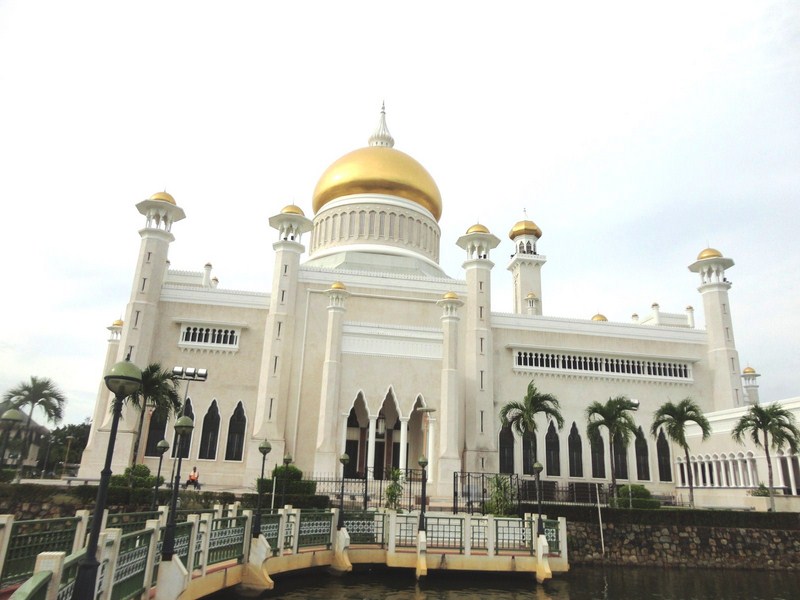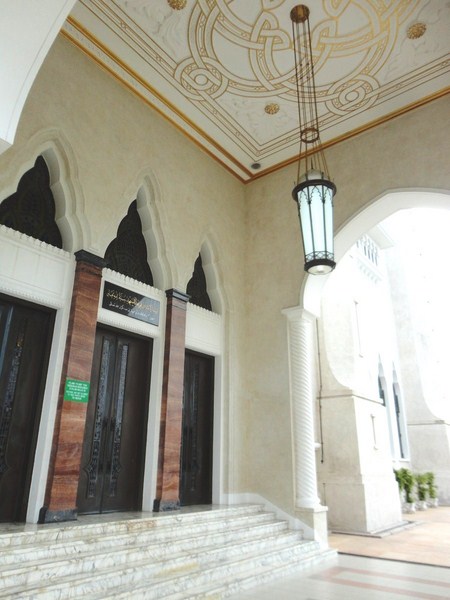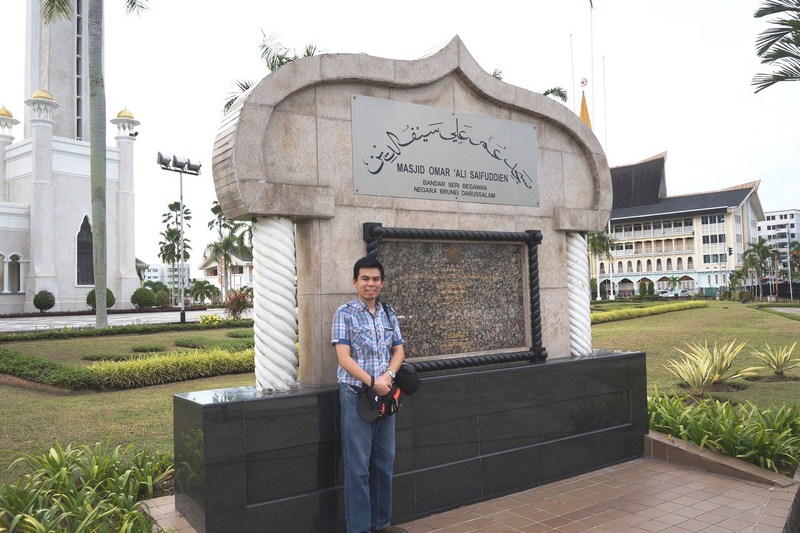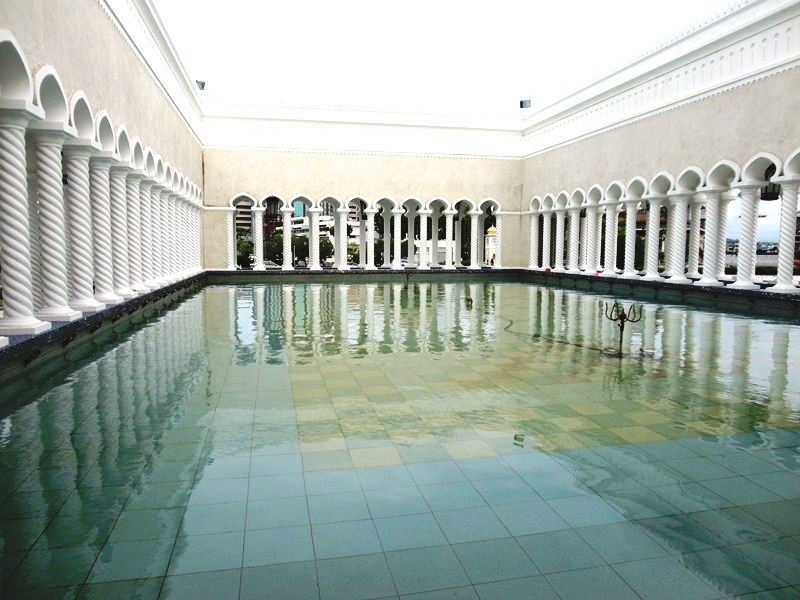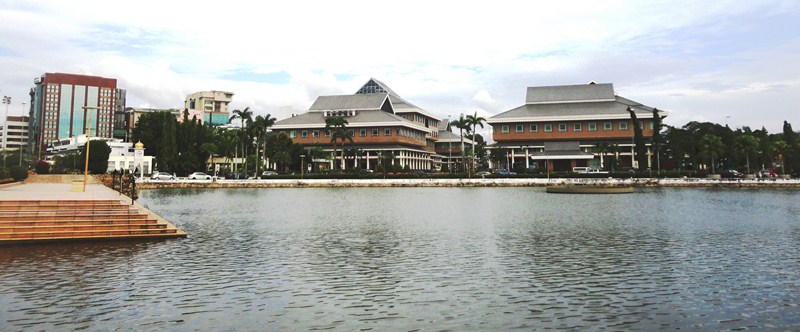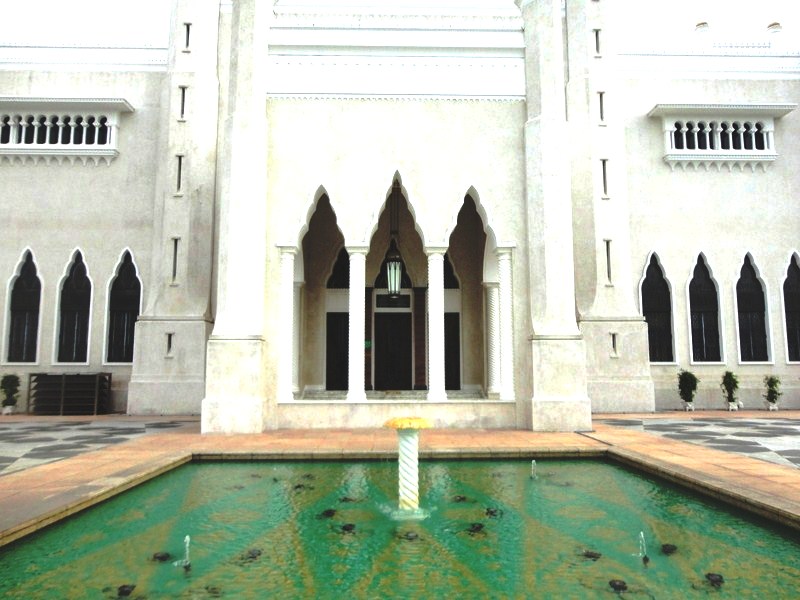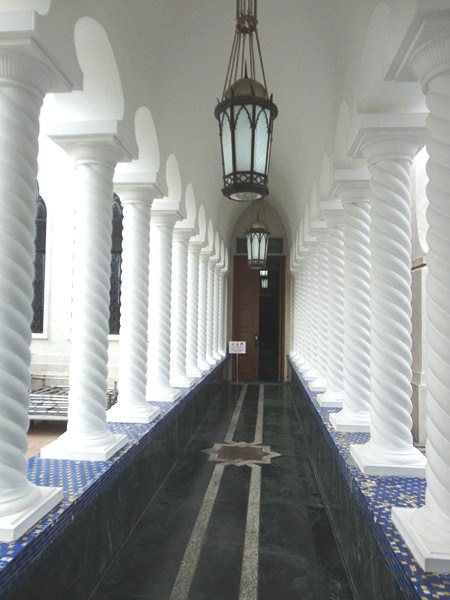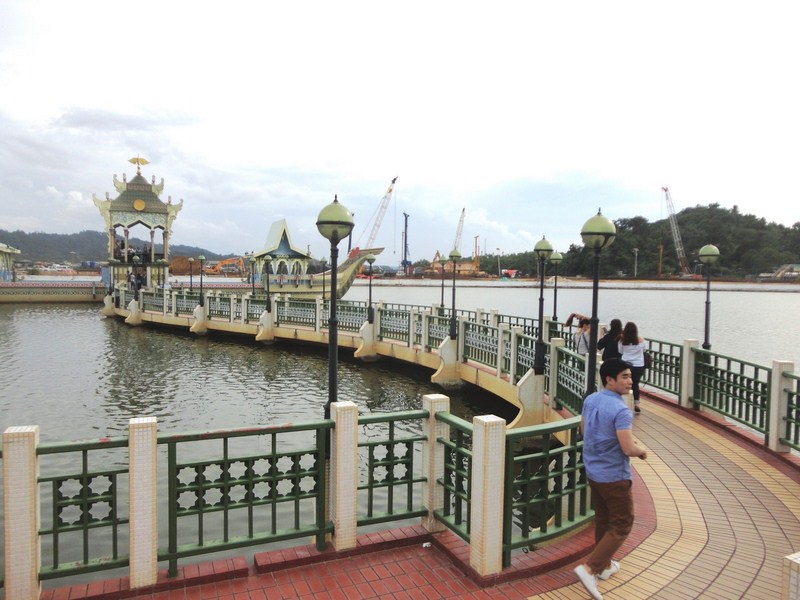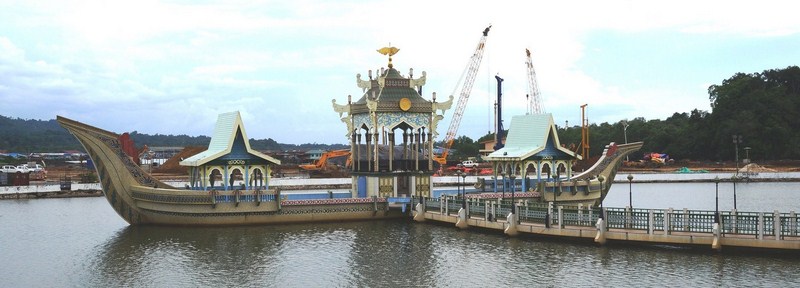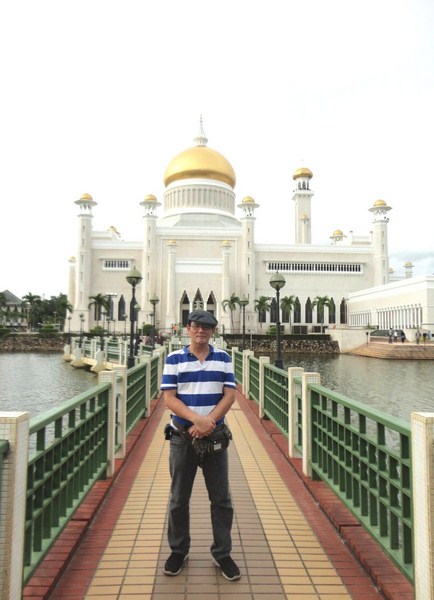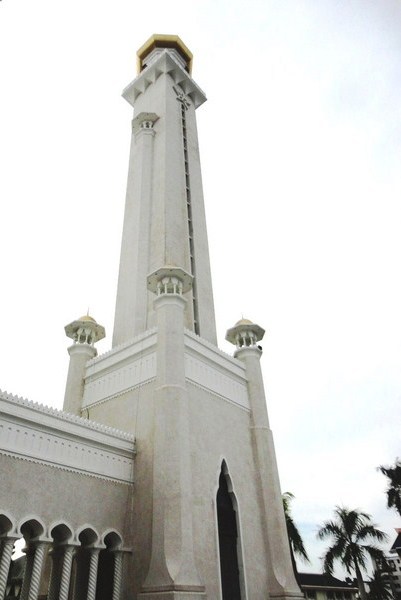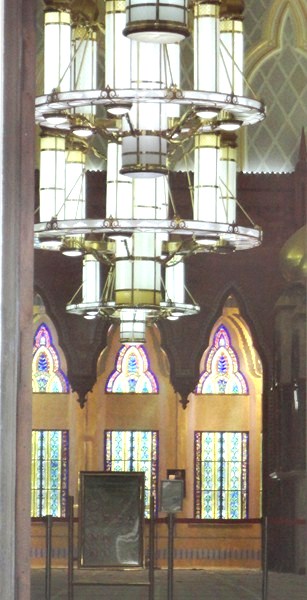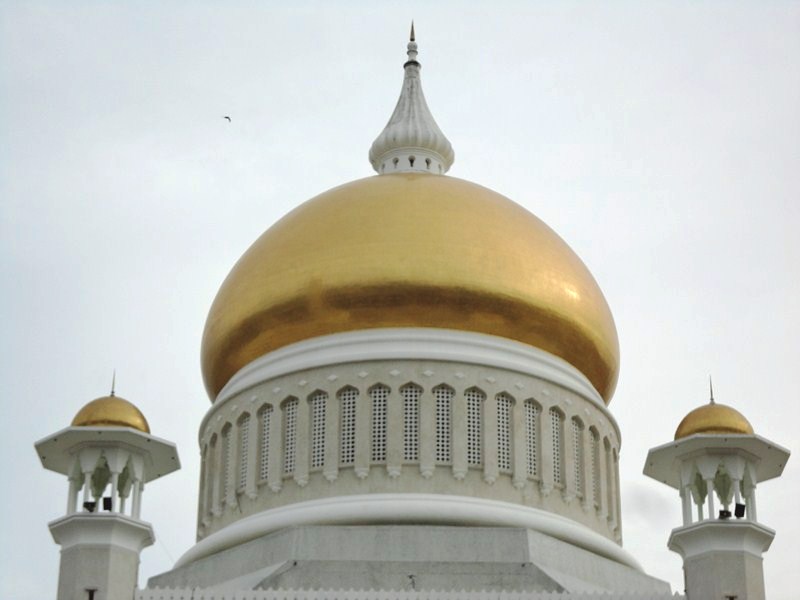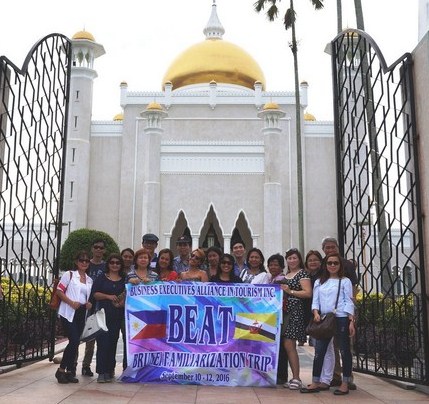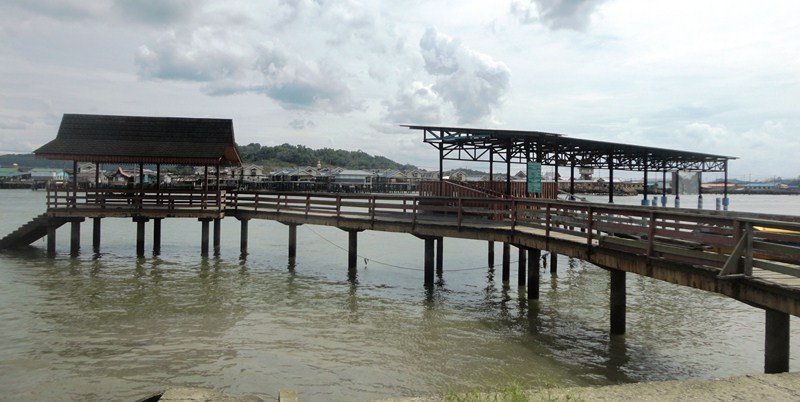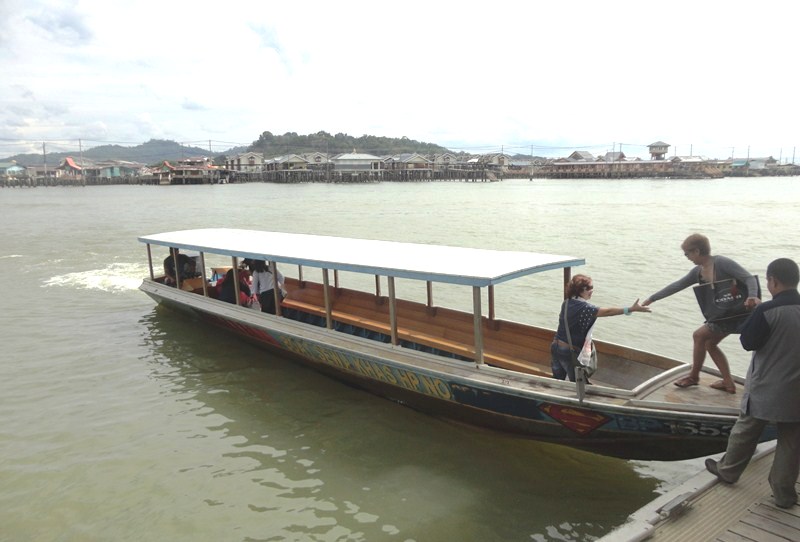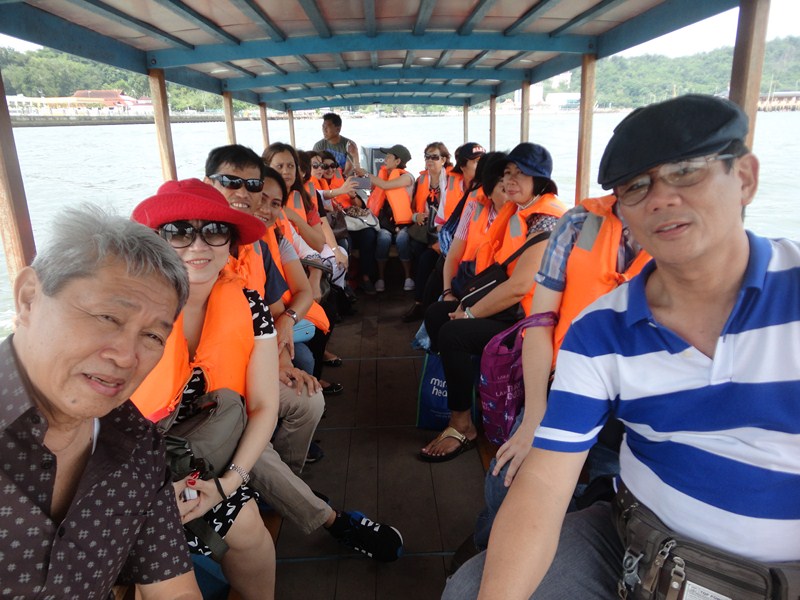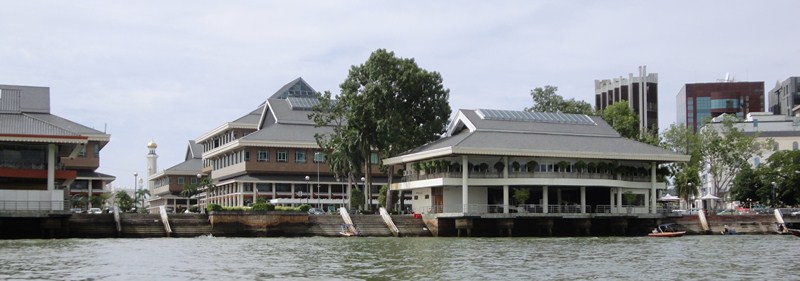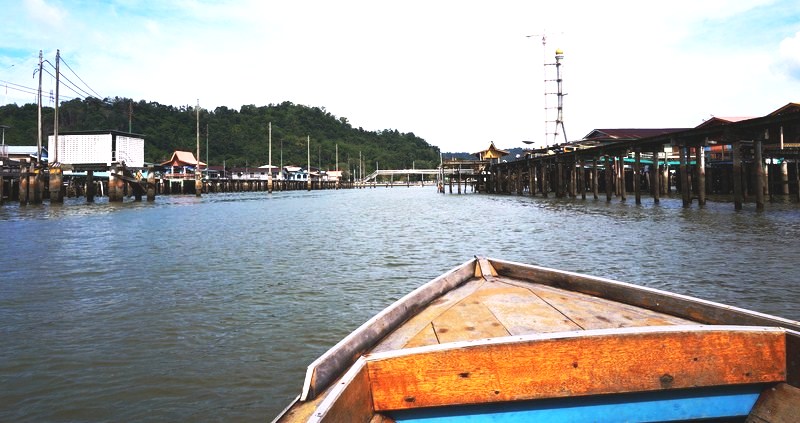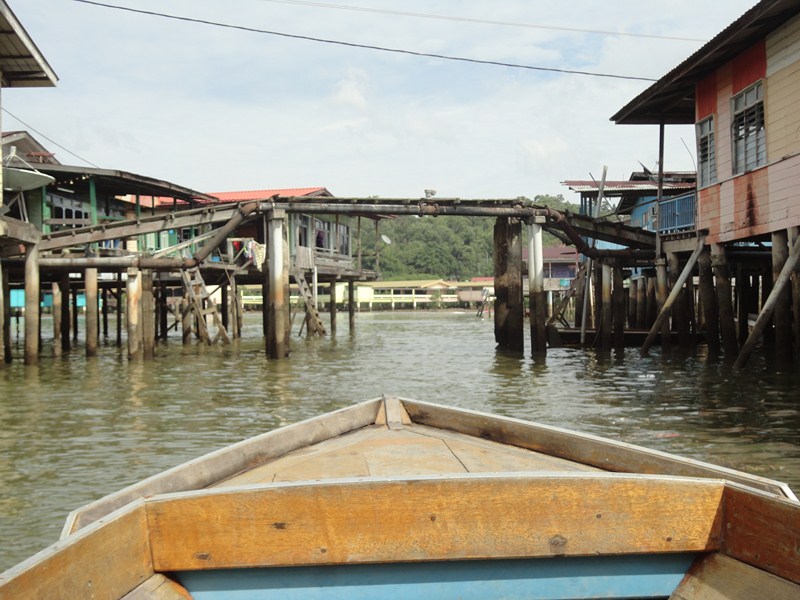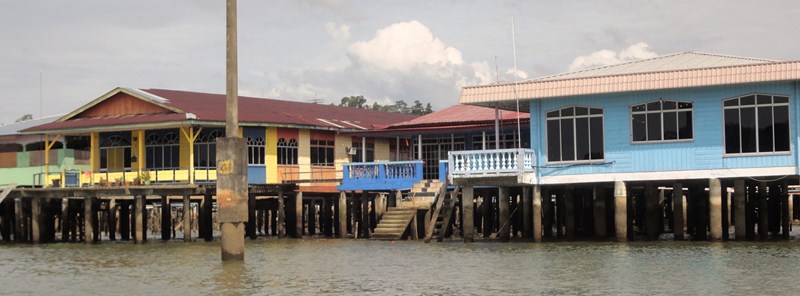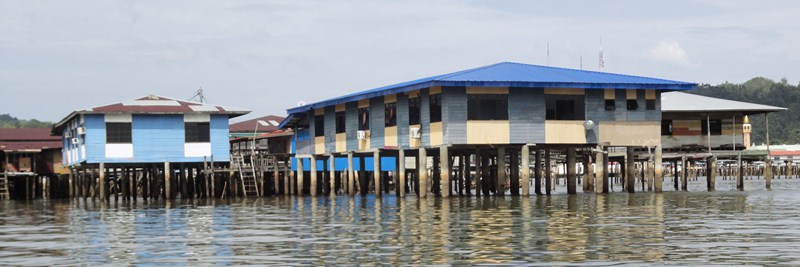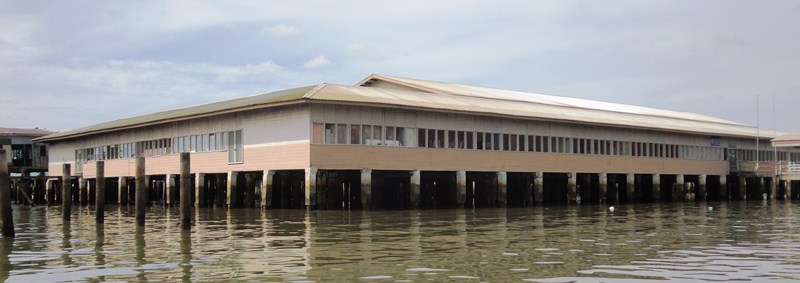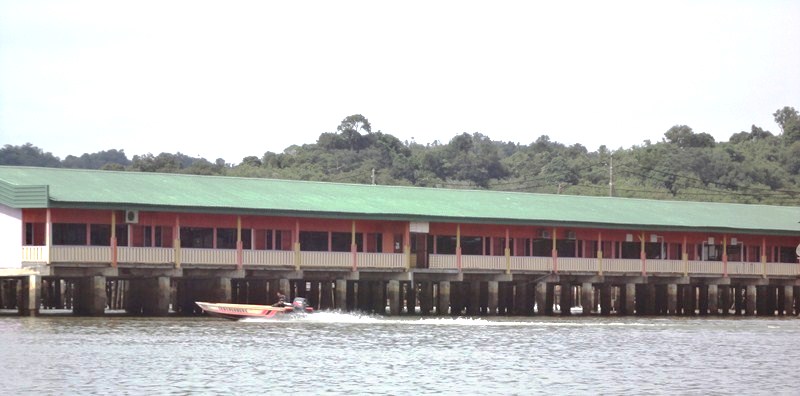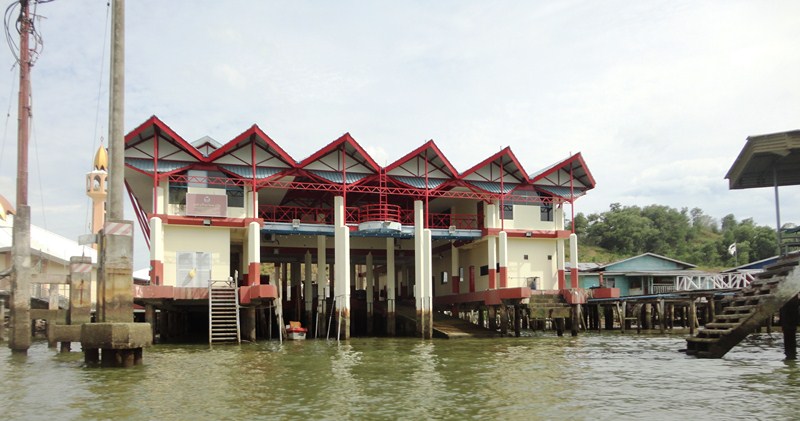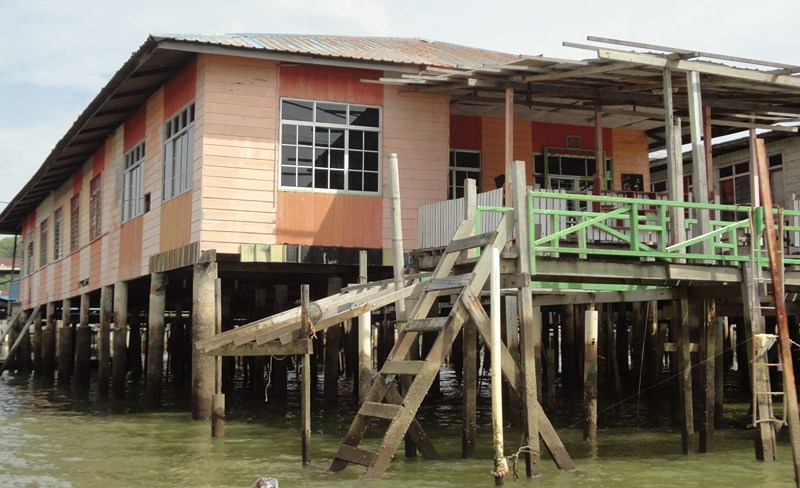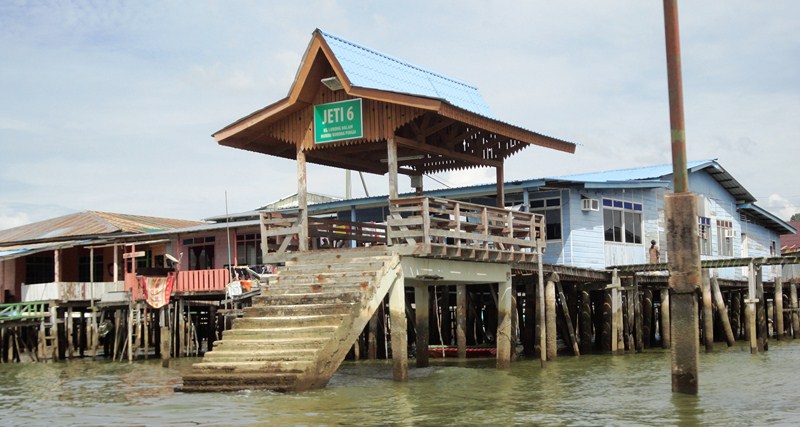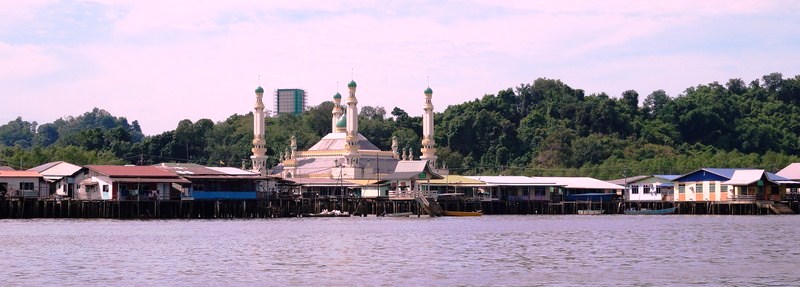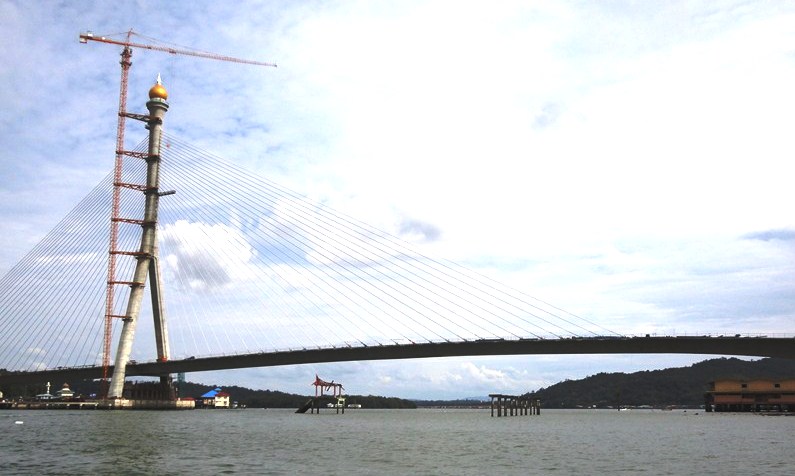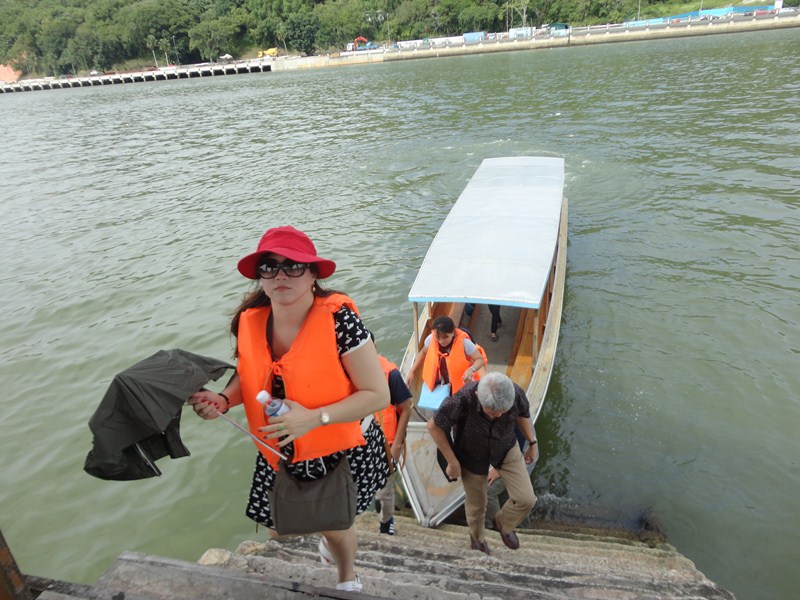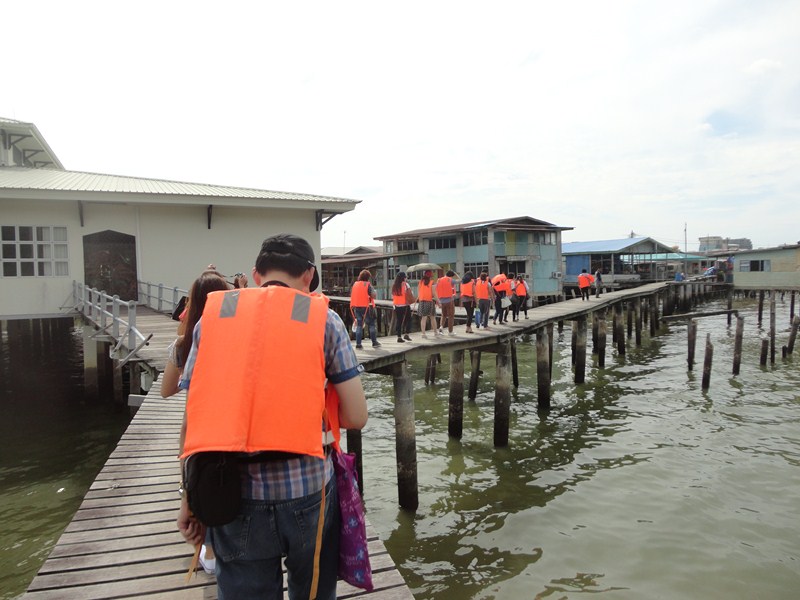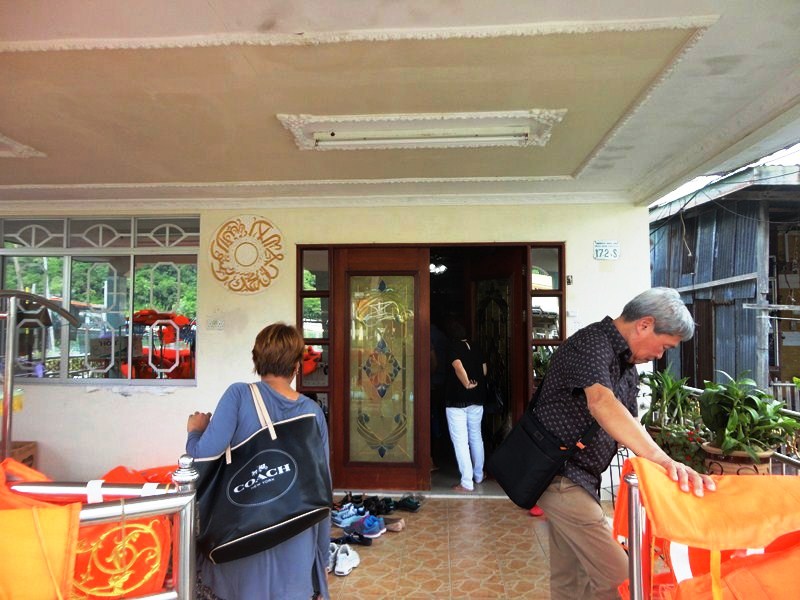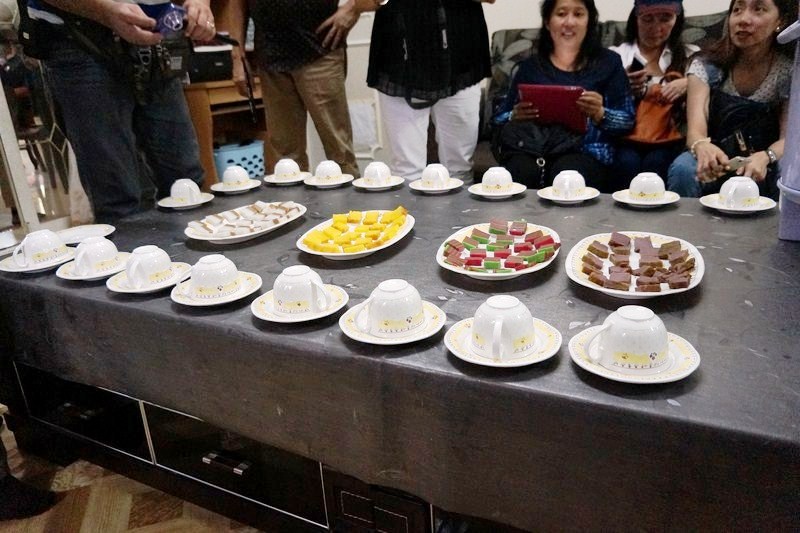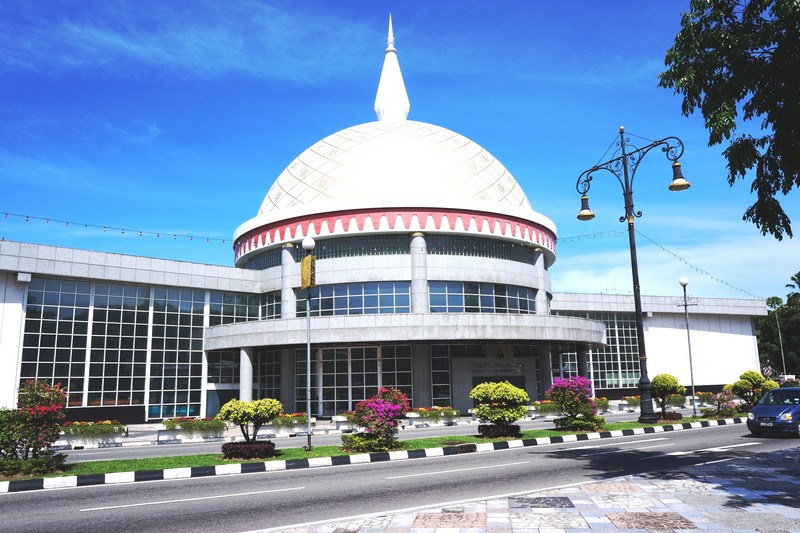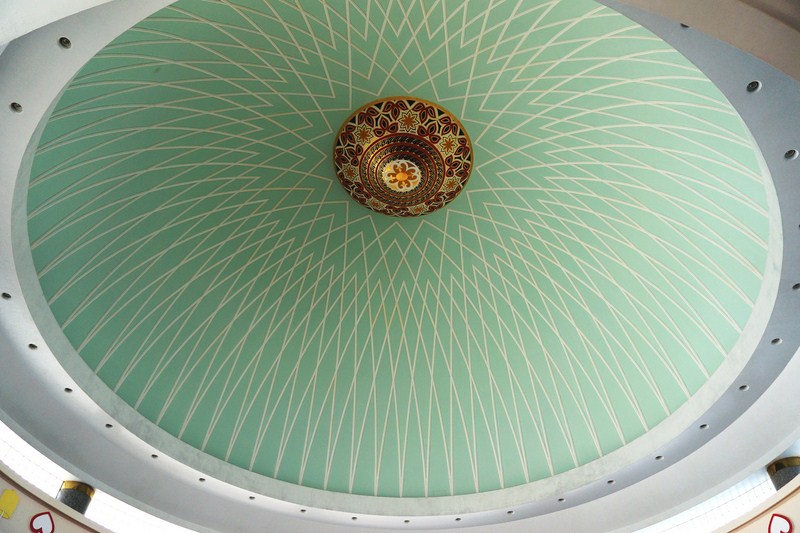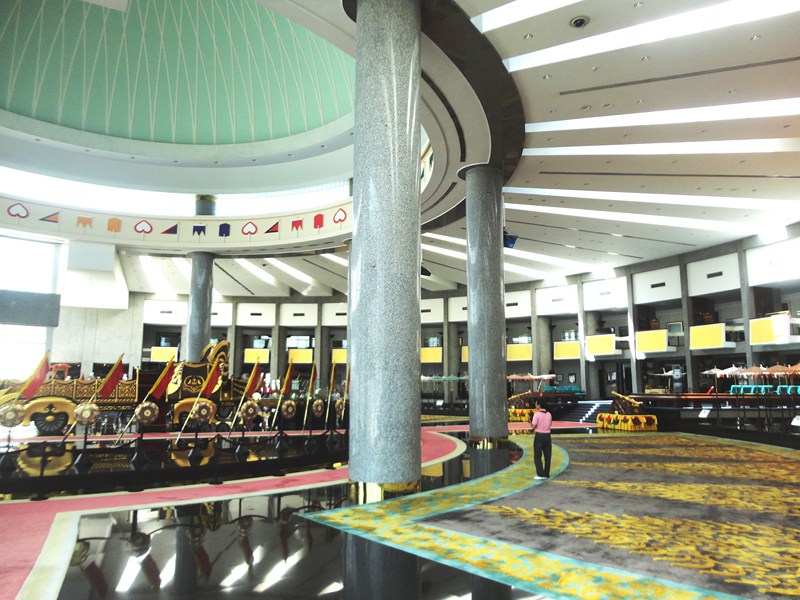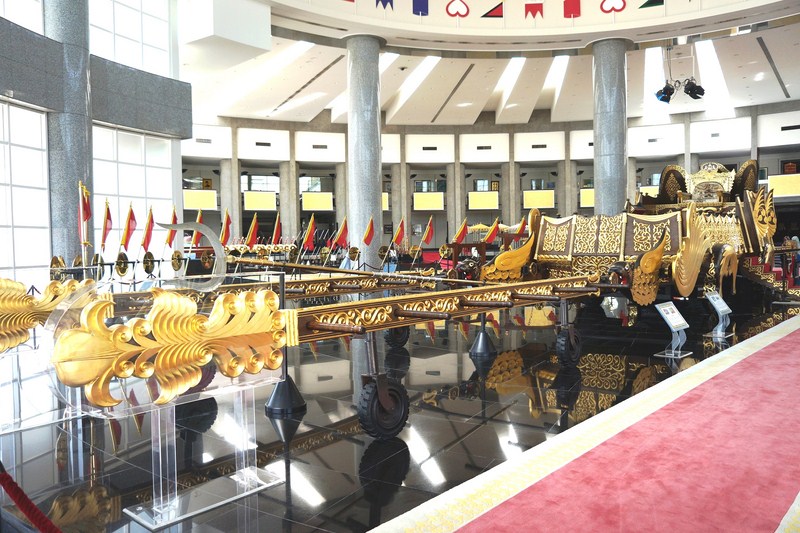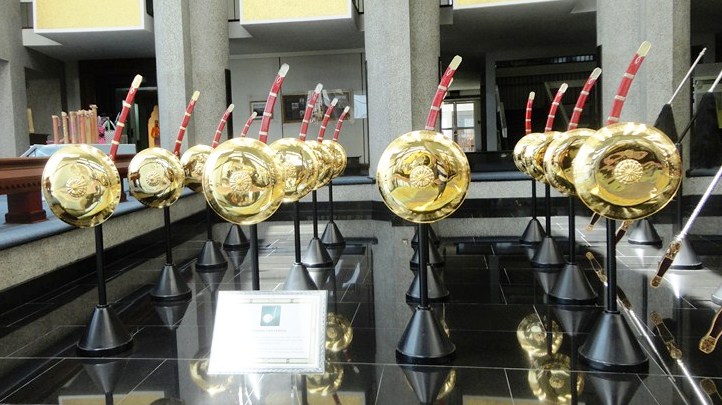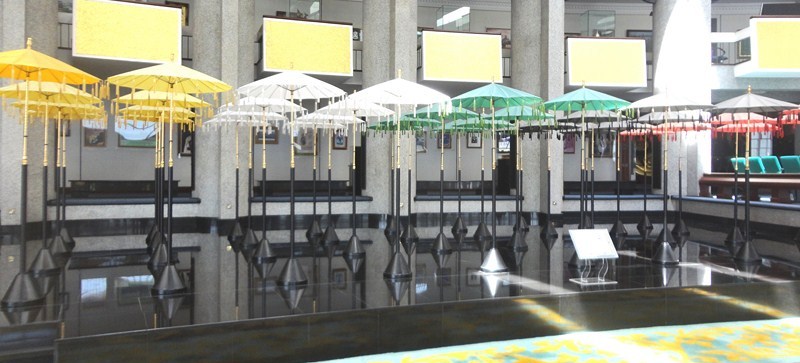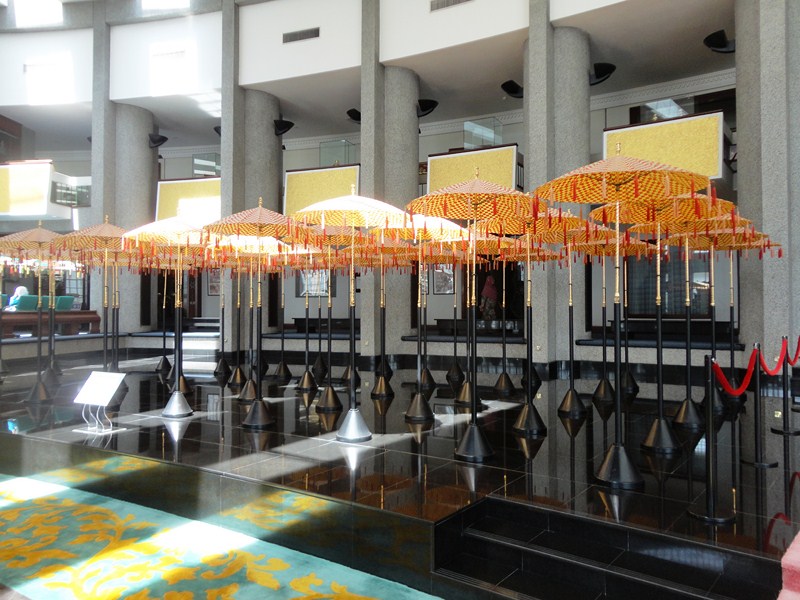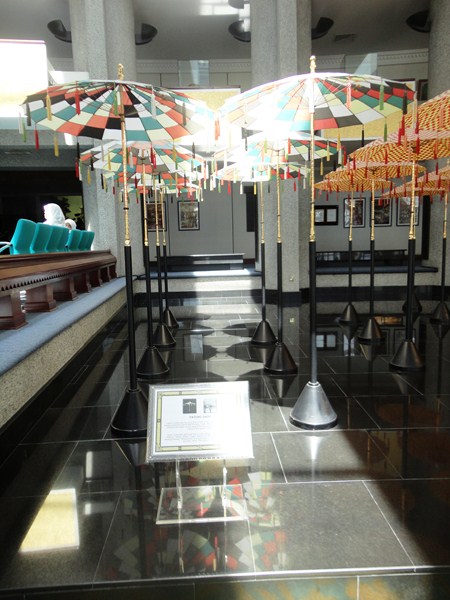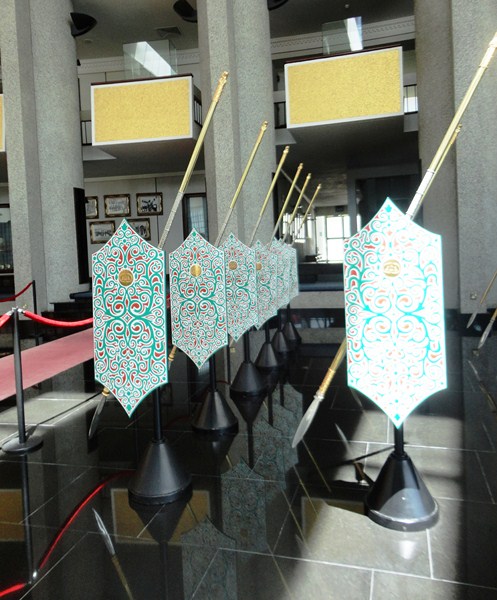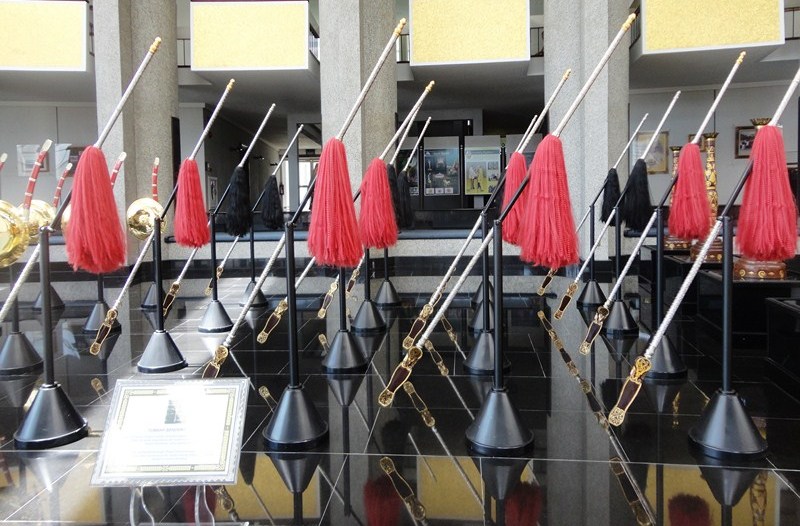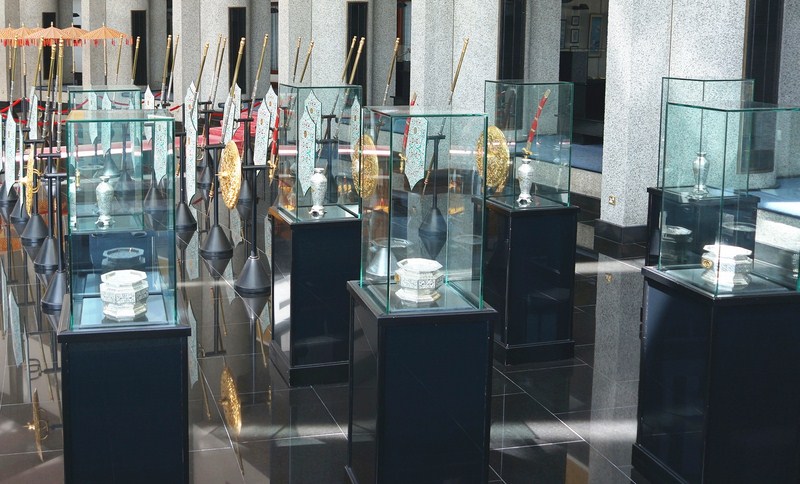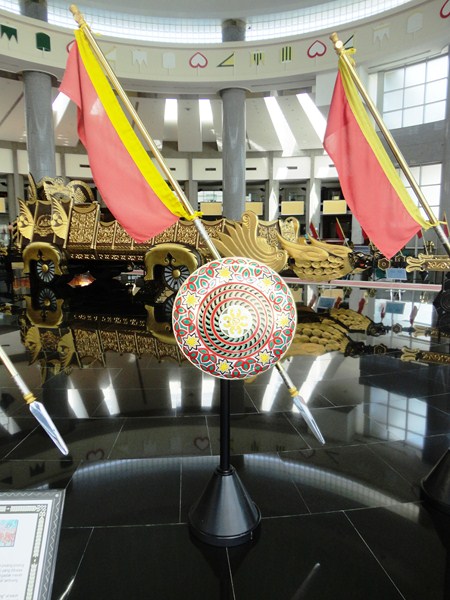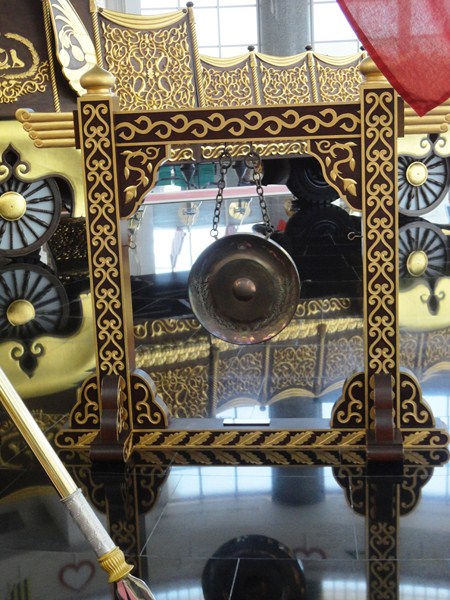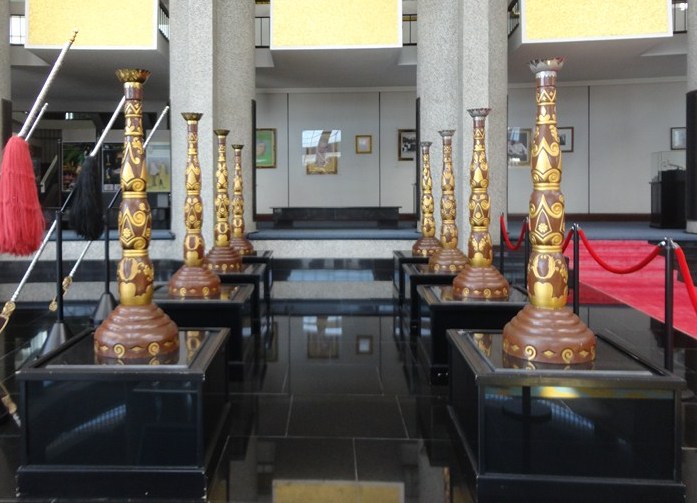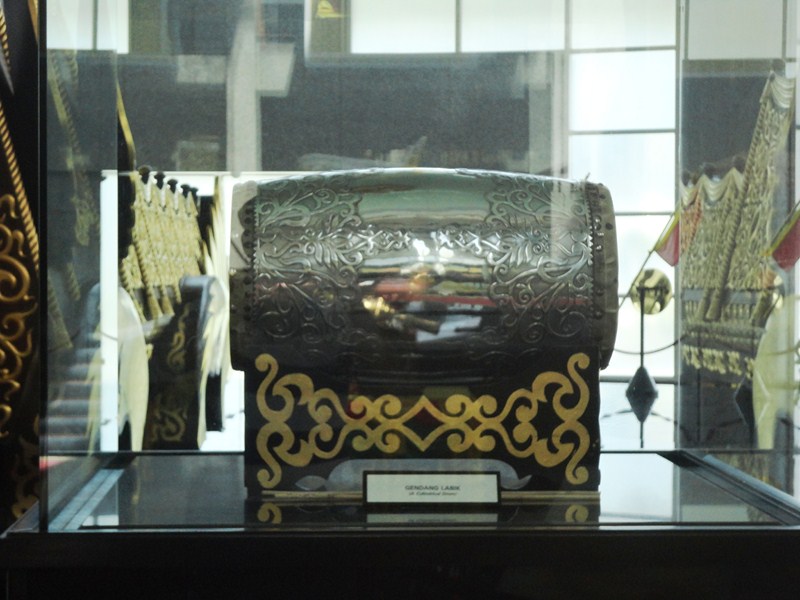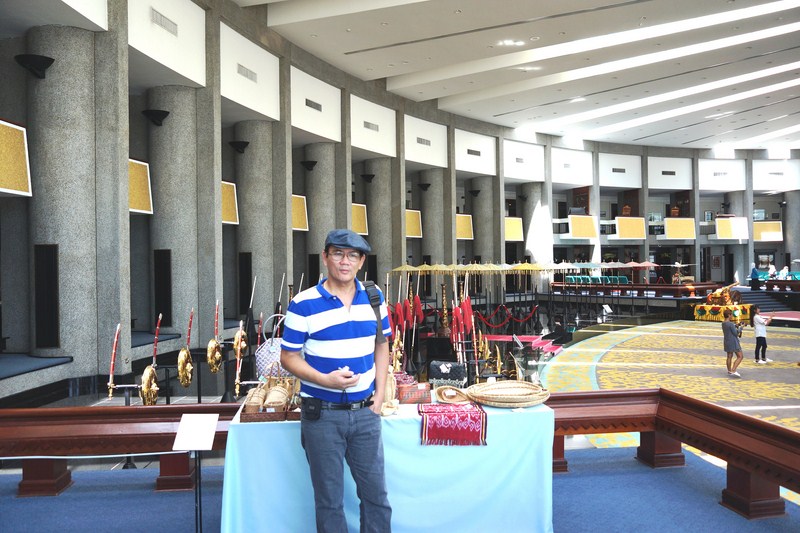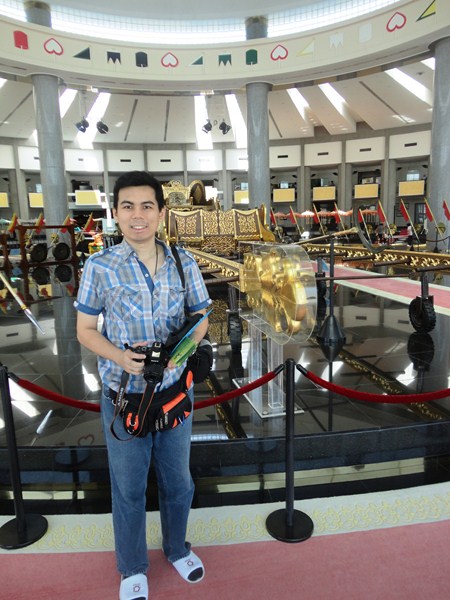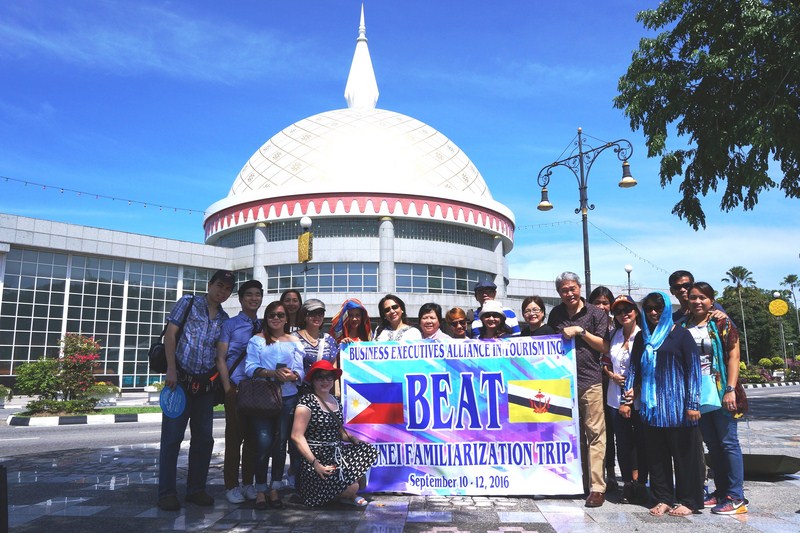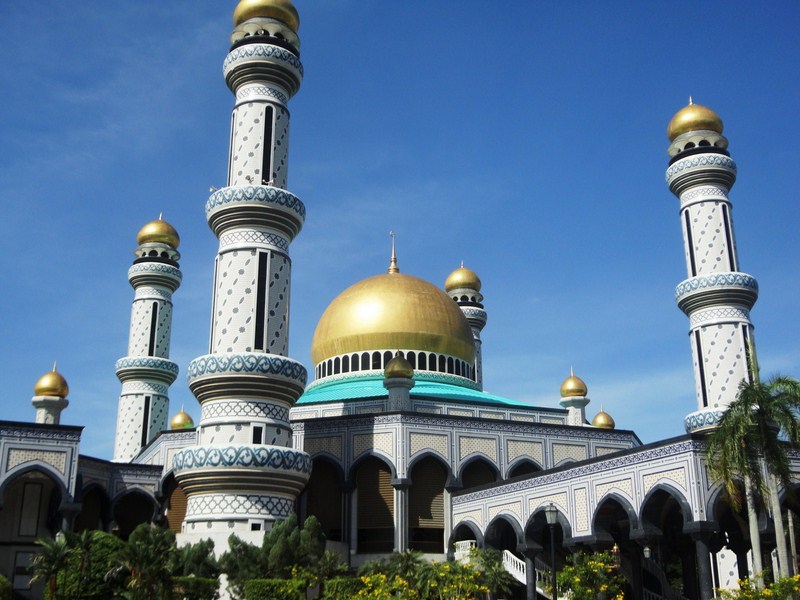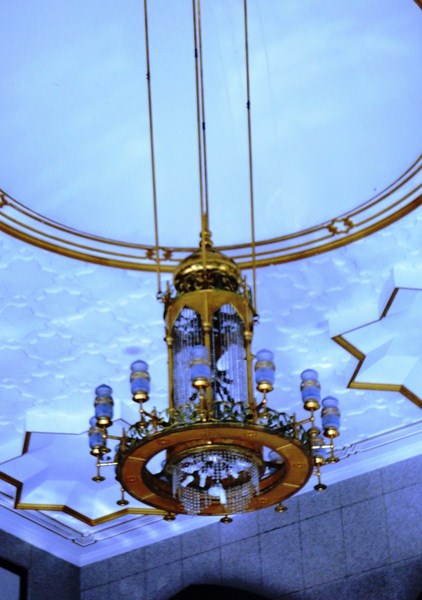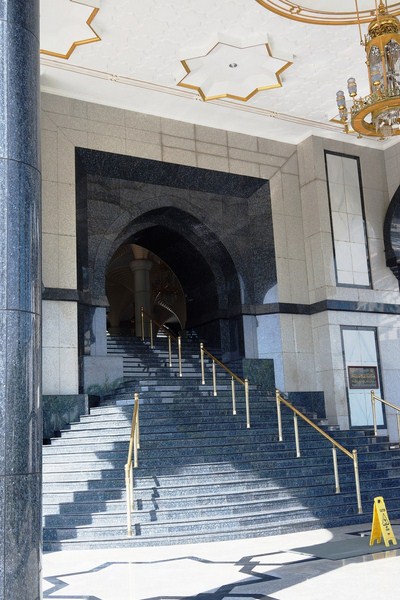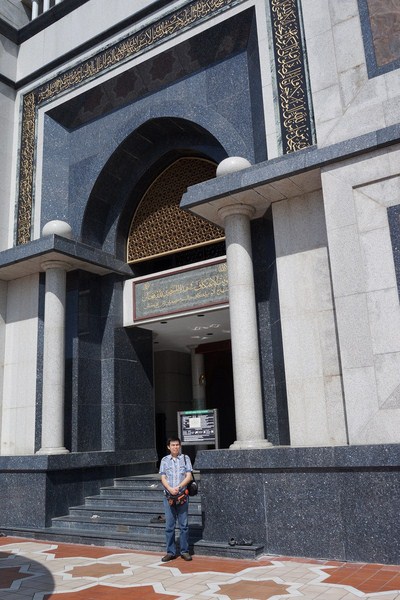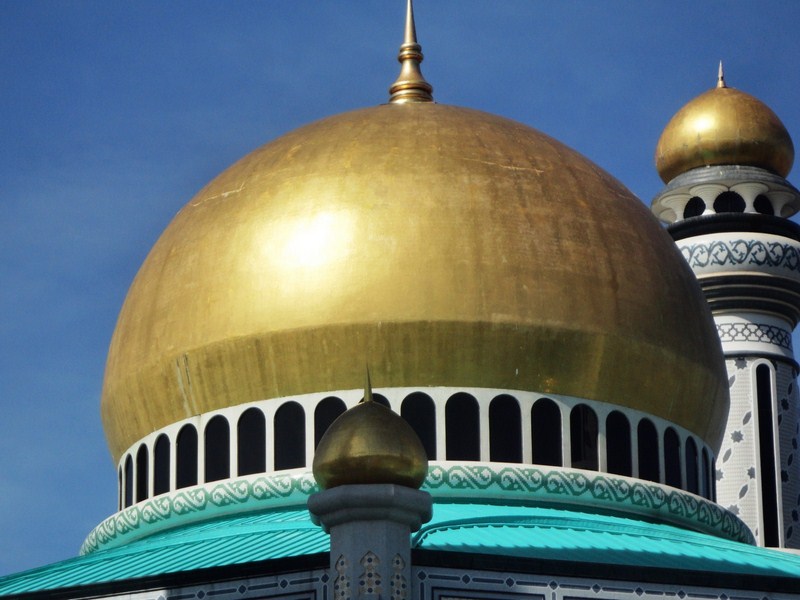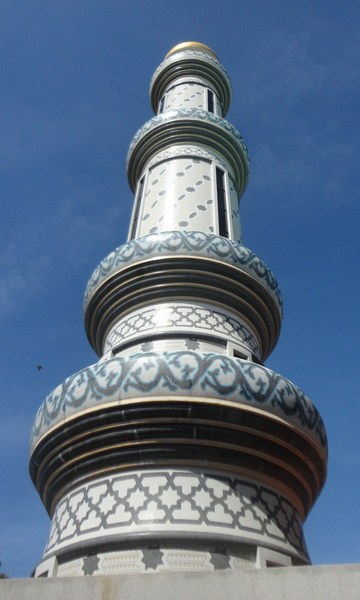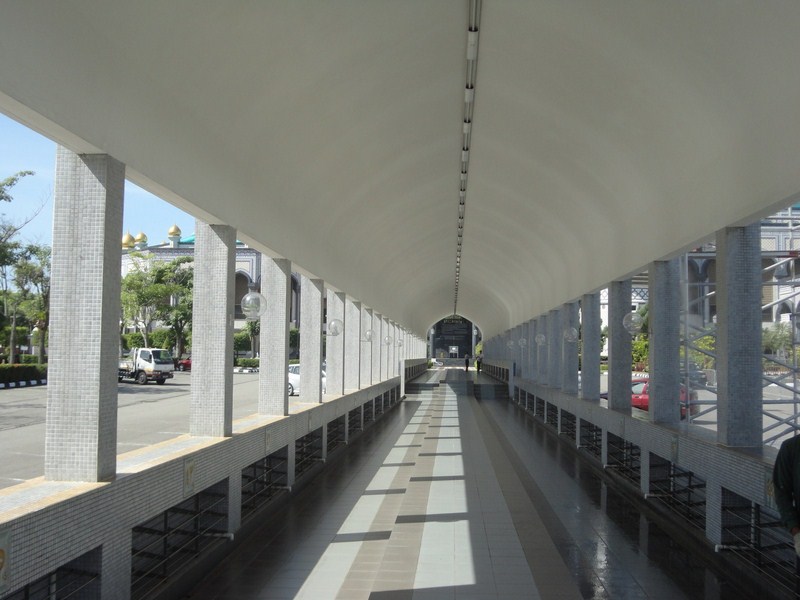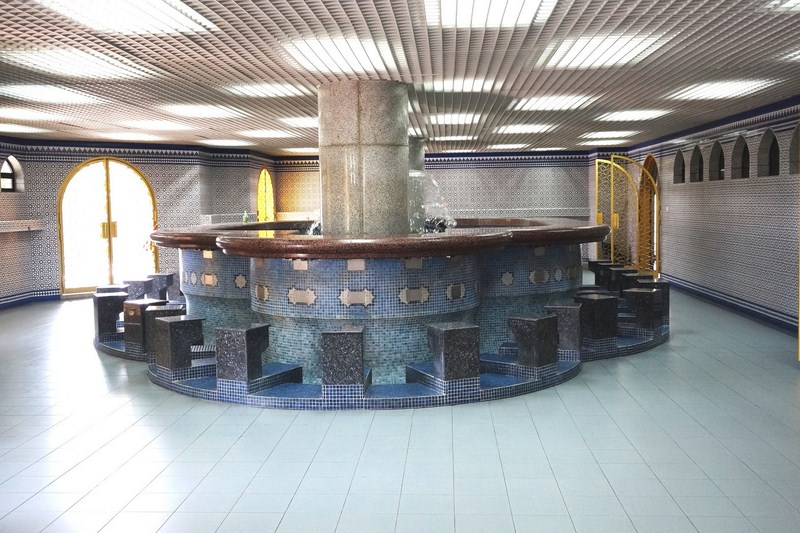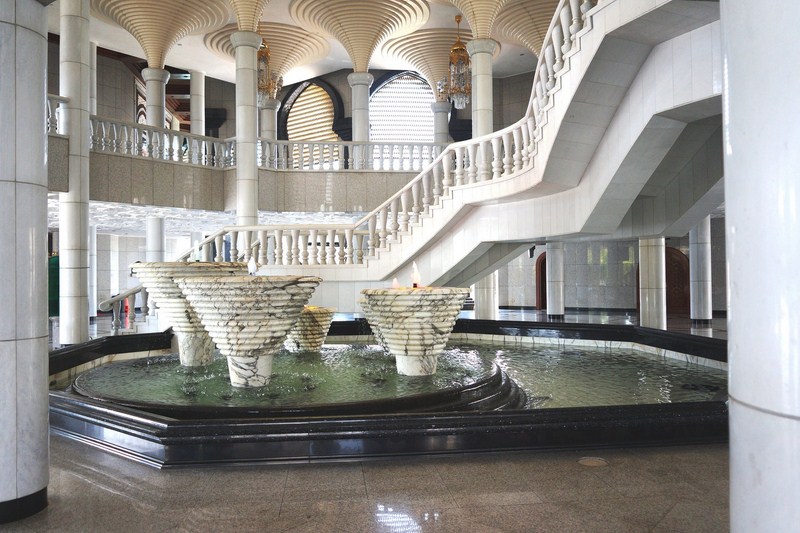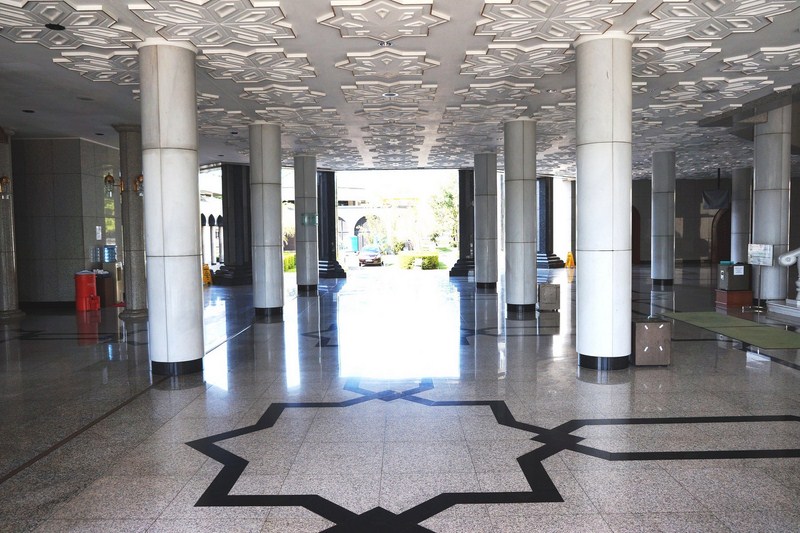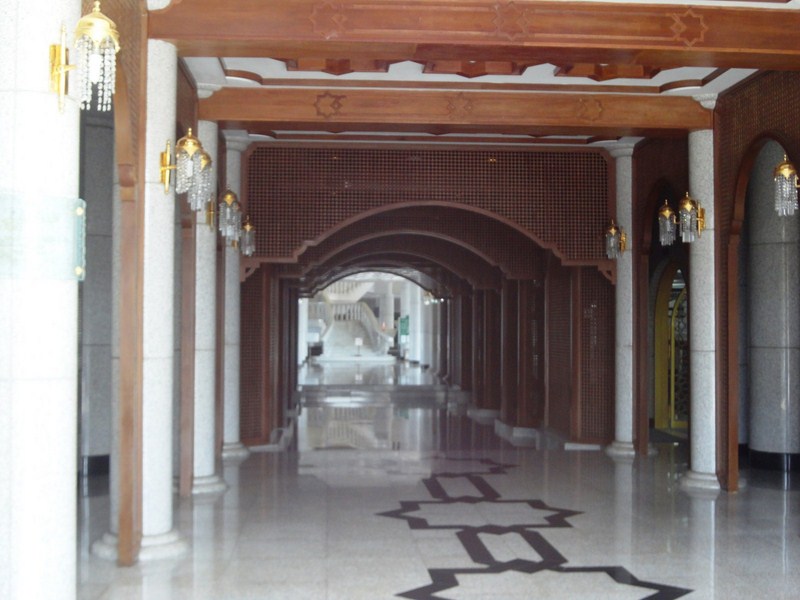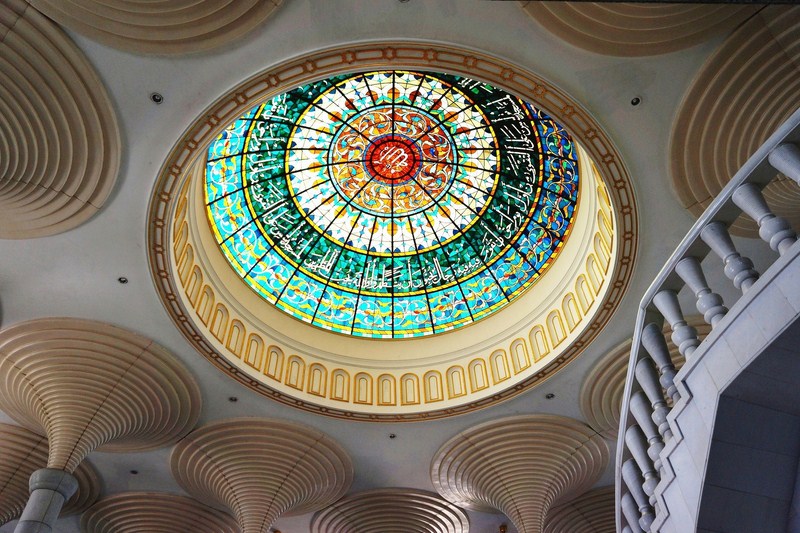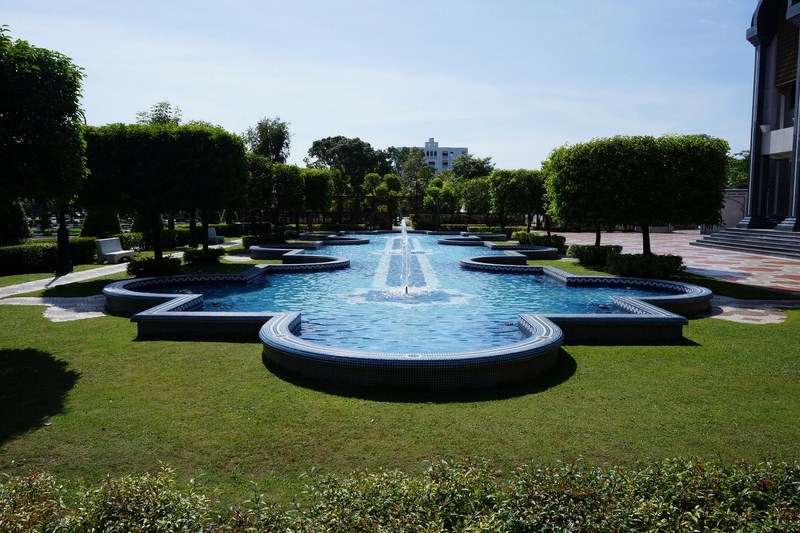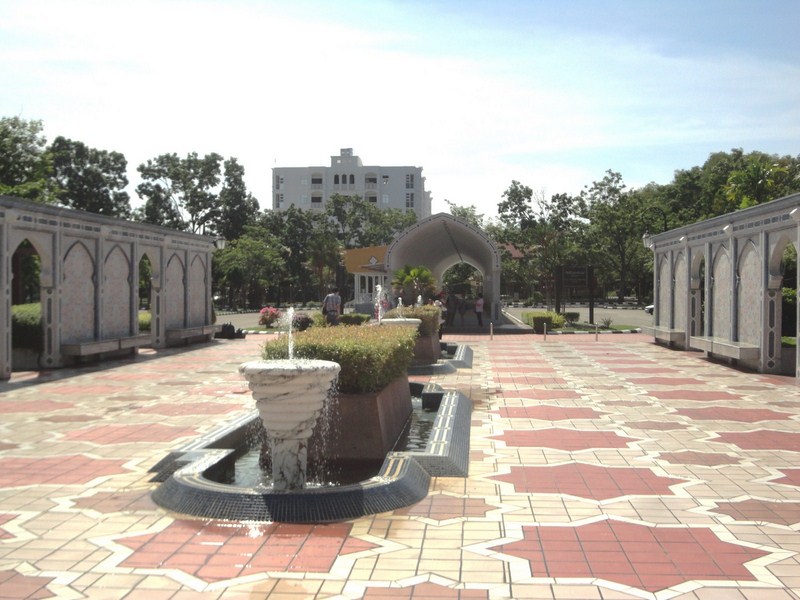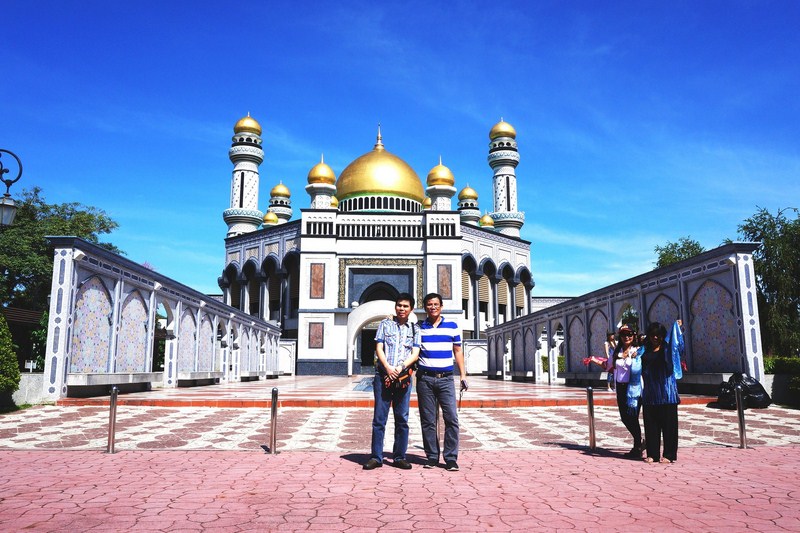The Sultan Omar Ali Saifuddien Mosque, often considered as one of the most beautiful Islamic mosques in the Asia Pacific is, aside from being a place of worship (Brunei’s first national mosque) for the Muslim community and solemnization ceremony site for Muslim weddings, a major historical site and a famous tourist attraction of Brunei.
An example of modern Islamic architecture named after Omar Ali Saifuddien III, the 28th Sultan of Brunei (the current sultan’s late father) who also initiated its construction, the mosque serves as a symbol of the Islamic faith in Brunei and, being the tallest structure in Bandar Seri Begawan, dominates the skyline of the city.
Sitting on a 5-acre lot, the building was started on February 4, 1954 and inaugurated on September 26, 1958. The mosque is 68.6 m. (225 ft. long), 26.22 m. (86 ft.) wide, 52 m. (171 ft., it can be seen from virtually anywhere in Bandar Seri Begawan) high and has a capacity of about 3,000.
The mosque unites Mughal architecture and Malay styles and was designed by the Italian architect and sculptor Cavaliere Rudolfo Nolli (with architectural plans prepared by Booty and Edwards Chartered Architects), probably his last commission (he died in 1963). Construction work was done by Chinese and Malay engineers and total cost of construction was between $7.7 and $9.2 million.
Built in an artificial lagoon on the banks of the Brunei River at Kampong Ayer– the “village in the water,” the mosque has marble minarets and golden domes supported by walls of Italian marble (which also forms the mosque’s columns, arches and towers), a courtyard and is surrounded by a mini water fountain, a large number of trees, floral gardens.and benches for congregants and visitors to rest their weary feet.
Located right outside the mosque are wudhu (ablution areas) for men and women.The musalla (prayer hall) can be accessed through the main entrance, which is elaborately decorated with verses from the Quran, as well as side entrances. The separate prayer area for women is located towards the left side of the entrance and up a spiral staircase.
The kalat (a very thick rope) shaped design, one of the local elements incorporated into the design, are plastered winding on all the outside columns. In the Brunei tradition of building lapau (halls), the kalat (rope) is actually used to install the columns and it is usually dyed with gold and other colors.
A bridge reaches across the lagoon to Mukim Sungai Kedayan in the middle of the river. Another marble bridge leads to a structure in the lagoon meant as a replica of a 16th century Sultan Bolkiah Mahligai Barge from the reign of Sultan Bolkiah, the fifth ruler of Brunei..
The barge itself, costing US$250,000, was completed in 1967 to commemorate the 1,400th anniversary of Nuzul Al-Quran (coming down of the Quran) and was used to stage the Quran reading competitions. It is a perfect spot for getting a good photo of the mosque.
The mosque’s most recognizable feature, the main dome, is covered in pure gold is made up of 3.3 million pieces of Venetian mosaic covering 520 sq. m. The 44 m, high main minaret, the mosque’s tallest feature, incorporates a unique mix of Renaissance and Italian architectural styles not seen in many mosques in the world. It is equipped with four 50-watt loudspeakers that allows the voice of the muezzin (official who makes the call to prayer) to be heard as far as 4 kms. away during the azan (call to prayer). The minaret has an elevator and a 244-step spiral staircase to the top, where a visitor can enjoy a panoramic view of the city.
The interior of the mosque, for prayer only, features stained glass windows, arches, semi-domes and marble columns and is filled with elements of Islamic art especially the calligraphy, flowers, geometric patterns and the likes.
The domed ceiling is inscribed with a single Quaranic verse that reads; “Whosoever is in the heavens and whatsoever is on the earth glorifies Allah. His is the dominion and to Him belong all the praises and thanks and He is Able to do all things.” (Surah Al-Taghabun, 64:1). To the right of the slender marble minbar (which rises to the right of the mihrah which sits prominently at the end of the prayer hall) is an escalator that leads to a separate enclosure, a quiet sanctum for the royal family. Khutbah (Friday sermons) are delivered by the imam who holds a 179 cm. long staff made of impas wood and capped with a miniature of the mosque’s golden dome.
Nearly all the material used for the building were imported from abroad: the marble from Italy; the granite of the outer walls from Shanghai (China); the crystal chandeliers (weighing 2 tons) and stained glass windows (weighing 4 tons) from England; and the handmade carpets from Saudi Arabia and Belgium.
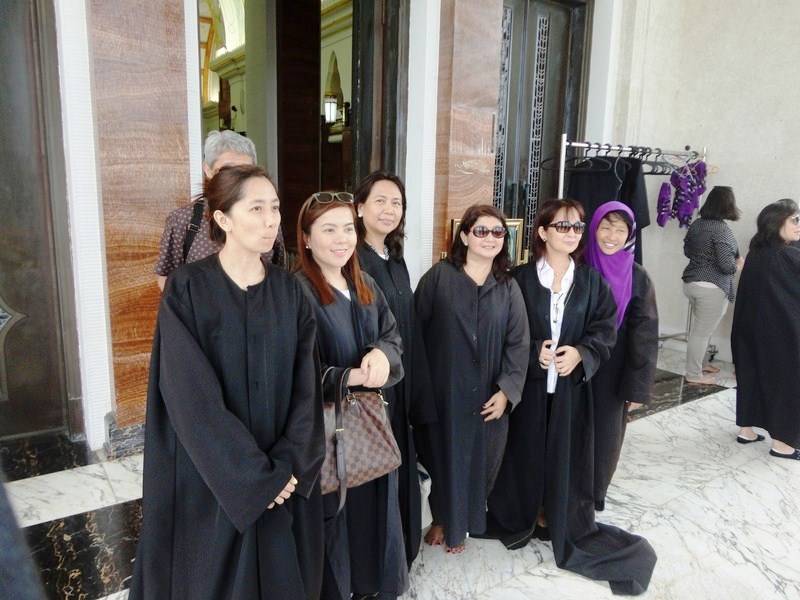
L-R: Dyan, Karren, Tess, Luchie, Erlie and Rosanna (with hijab) wearing long black polyester jubahs required for entrance into the mosque
Sultan Omar Ali Saifuddien Mosque: Jalan MacArthur, Bandar Seri Begawan BS8711, Sultanate of Brunei. Tel:+231 88 090 9413. Visiting hours: 8.30 AM to 12 noon, 1.30 to 3 PM and 4.30 to 5.30 PM, Saturdays to Wednesdays, and 4.30 to 5 PM on Fridays. Closed on Thursday and during religious activities. Visitors can walk around the exterior compound from 8 AM to 8.30 PM, daily, except during prayer times. When entering the mosque, shoes must be removed and women should cover their heads with a hijab and not have their knees or arms exposed. There are jubahs (long dresses) available outside the entrance that visitors can borrow while visiting the mosque. Visitors also are not allowed to pass in front of a person in prayer or touch the Quran. They are also not allowed to take pictures inside the mosque.

